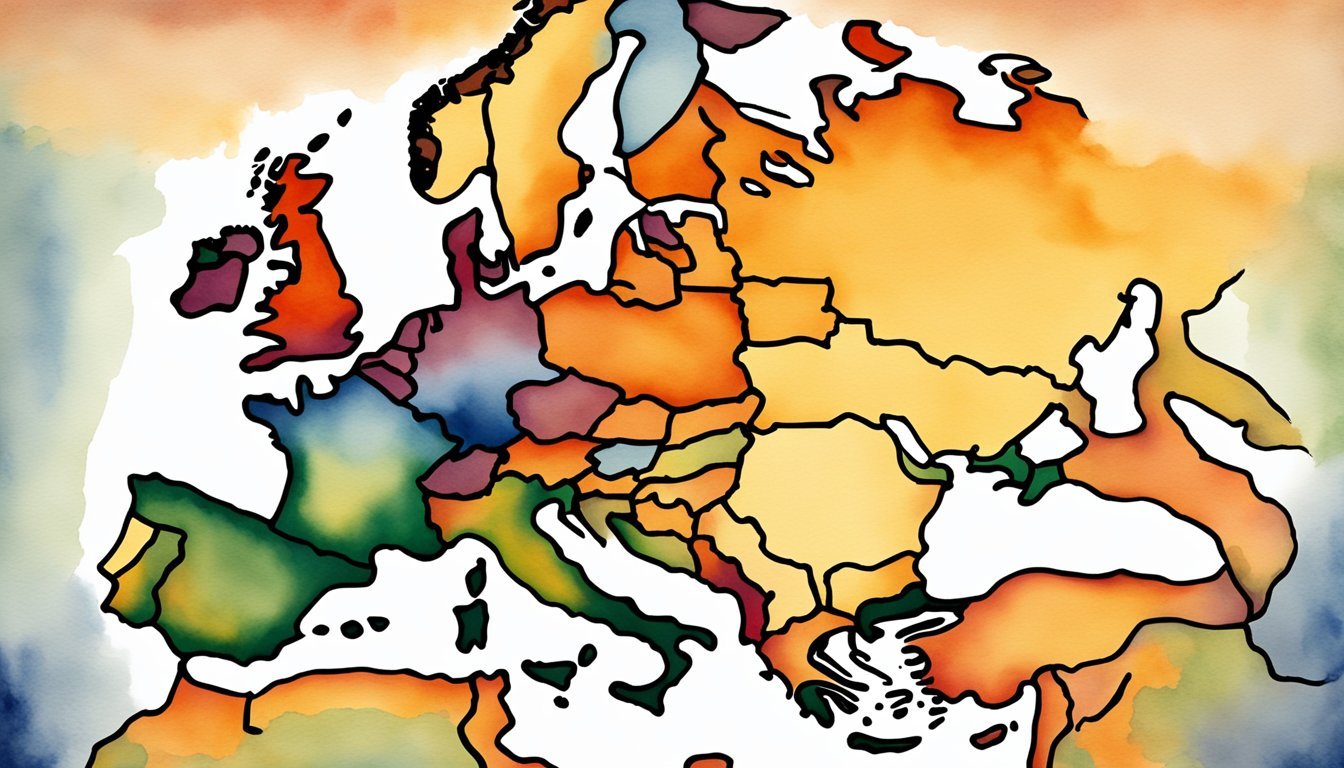Understanding Russia’s Nuclear Capabilities
Historical Context of Russia’s Nuclear Development
Russia has a long history of nuclear development, starting with the Soviet Union’s involvement in the arms race during the Cold War. Russia emerged from the collapse of the Soviet Union in 1991 and inherited a large portion of the Soviet nuclear arsenal. Throughout the 1990s and 2000s, Russia has been modernizing its nuclear capabilities.
Russia’s Current Nuclear Arsenal
According to the Federation of American Scientists, Russia has approximately 5,977 nuclear warheads. These include both strategic and tactical nuclear weapons. Strategic nuclear weapons include intercontinental ballistic missiles (ICBMs) and bombers, while tactical nuclear weapons are designed for use in limited, regional conflicts.
Russia has a diverse range of weapon systems that make up its nuclear arsenal:
- ICBMs: Russia has various ICBMs, such as the RS-28 Sarmat, which can deliver multiple nuclear warheads over a long distance.
- Bombers: Moscow has long-range bombers like the Tu-160 Blackjack and Tu-95 Bear, capable of delivering nuclear payloads.
- Submarines: Russia maintains a fleet of nuclear-powered submarines, such as the Borei- and Yasen-class submarines, which can launch ballistic missiles carrying nuclear warheads.
- Tactical Nuclear Weapons: These are typically deployed on shorter-range systems like cruise missiles, artillery, and torpedoes.
The Strategic Importance of Ukraine
The current conflict between Russia and Ukraine has raised concerns about the potential use of nuclear weapons. Although Ukraine was a nuclear-armed country at the time of the Soviet Union’s collapse, it voluntarily relinquished its nuclear weapons in 1994 under the Budapest Memorandum, in exchange for security guarantees from Russia, the US, and the UK.
The ongoing conflict and Russia’s annexation of Crimea in 2014 have highlighted the strategic importance of Ukraine, both for Russia and the West. Moscow is concerned about the spread of NATO influence into Ukraine, while Western countries are alarmed by Russia’s increasing assertiveness in the region.
Additionally, Ukraine plays a critical role in Russia’s nuclear industry as it supplies components and maintenance services for Russian nuclear power plants. In light of the current situation, the geopolitical stability and potential impact on Russia’s nuclear capabilities remain crucial to global security.
The Geopolitical Impact of Russia’s Nuclear Threat

Potential Scenarios of Nuclear Escalation
Russia’s nuclear threats have escalated since Putin’s angry speech during the ongoing war in Ukraine, leading to concern about potential scenarios of nuclear escalation. Although it is unlikely for Russia to initiate a full-scale nuclear war, it might deploy tactical nuclear weapons to achieve limited objectives. This use could further escalate tensions between Russia and the West, potentially leading to a catastrophic nuclear conflict.
Global Reactions and Deterrence Strategies
The international community is well aware of the risks associated with Russia’s nuclear threats. The US, led by President Joe Biden, has been working with NATO to strengthen nuclear deterrence and avoid any potential escalation. European countries have also been stepping up their efforts to protect against possible nuclear incidents. In response to Russia’s threats, some countries like India and Turkey have provided significant military aid, such as drones, to Ukraine in order to counteract Russia’s advancements.
The Role of International Diplomacy
Diplomatic efforts are underway to prevent the conflict from escalating to a nuclear level. The United States and other Western nations have been engaging with Russia in various negotiations, showcasing their concern about the use of nuclear weapons. American Secretary of State Antony Blinken has been actively involved in discussions, emphasizing the importance of preserving Ukraine’s territorial integrity and sovereignty. Other nations like China and Belarus have also been involved in diplomatic initiatives, acknowledging the catastrophic consequences resulting from a potential nuclear conflict.
Throughout this evolving situation, the geopolitical impact of Russia’s nuclear threat remains a significant concern. The international community continues to work together to address and prevent any potential nuclear escalation, emphasizing the power of diplomacy and cooperation in preserving global safety and stability.

